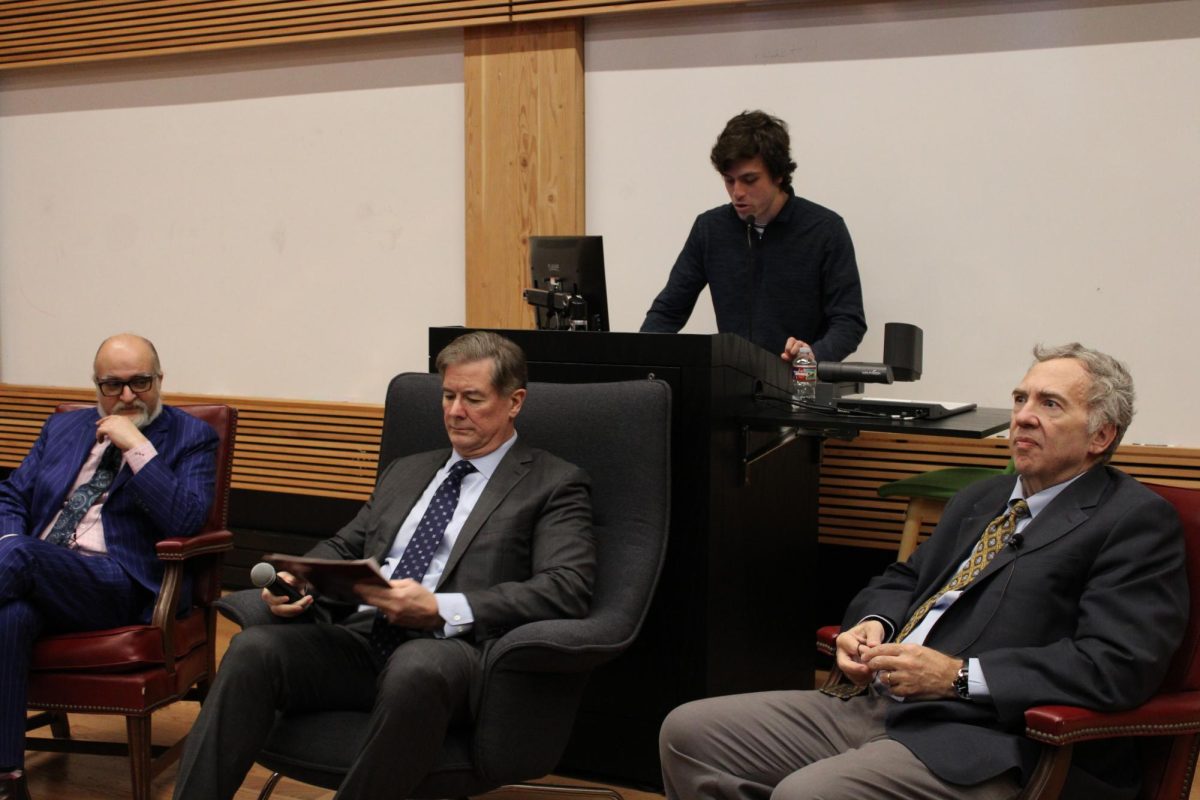There are a few people who wanted to know why racism really butters my egg roll. I give them the obvious answer: I’ve personally experienced it, it’s a rude thing to do, I want to be respected as a human being. These excuses worked well until I was pressed further to give an actual explanation.
Those who argue that racism is over now that we live in the 21st century really make me wonder. Is it because they have the privilege to be able to say that without a bit of doubt? Yes.
The ability to say “racism is no longer a social problem” and to simplify the racist climate in the world to “it’s just a white vs. black issue” is a privilege. The MLK march was not to recreate the Selma marchers, it was a way to respect those in the past and to encourage people to speak up against the tensions and disadvantages many of us continue to face.
We don’t march because we want to “make a carnival out of our struggles,” we march because we want to bring awareness to these problems.
Yes, racism no longer surfaces in segregation laws or beating up people that are different from you — the people that are protesting for human rights. But that doesn’t mean racism is dead, or that it never existed.
A recent argument also claimed that instead of finding a practical solution for our problems, we are just a bunch of progressives marching for no reason. Rallies are not just a place where every progressive lines up against the Conservative Southern White Man™ and blames him for all our problems. Rallies are a way to get our voices out and heard.
For a problem that was built upon years of systematic oppression, it isn’t so easy to blame the repercussions of racism on financial disparity. Stats about how top ethnic groups earn more per household do nothing to improve the conditions that minorities still suffer in America, and are not an excuse to continue racist sentiments.
When my dad had a gun pulled on him in an HEB less than two years ago and was told “Go back to your country,” even though he had been here for over 20 years, he was not asked his annual income. Economic disparity of a minority group is not a situation that would overrule the social implications and ingrained racism of many citizens — problems that have existed for hundreds of years.
Furthermore, this idea that racism is no longer an issue because Indian, Filipino and Taiwanese households bring in the most household income also encourages the faulty model minority rhetoric. This idea has been held above the heads of many Asian-Americans for years, and it’s meant to cause a rift between Asian and African-Americans and force Asian-Americans into submission. We have to keep quiet about racial issues, because how dare we ask for equal treatment when we’re making money?
My colleague claims he doesn’t feel welcome as an outsider looking in. Considering the arguments he has made and possible “solutions” he has proposed, it seems that he was one of the few people that this march wasn’t intended for. And that is alright, if you choose not to march.
However, that also doesn’t warrant a piece on why he believes racism isn’t an issue. This march is for people that have experienced oppression, and it is easier to believe racism no longer exists when you have experienced little oppression in your life.
Starting non-sequitur arguments about how the “foe is not the white man” or including arguments about the Democrats causing financial harm to an ethnic minority attempts to derail the conversation of race and places you in a victimized role, bringing the focus of the issue back to yourself rather than the common goal of equality.
I will also strive to love my fellow men and women. However, I will do it by supporting my friends who decide to walk the streets and fight for justice.






